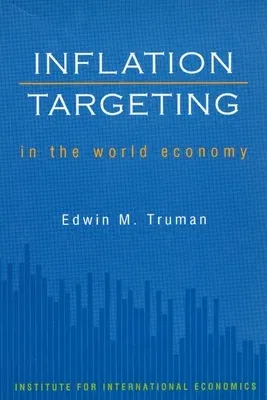Edwin Truman
(Author)Inflation Targeting in the World EconomyPaperback, 27 October 2003

Qty
1
Turbo
Ships in 2 - 3 days
In Stock
Free Delivery
Cash on Delivery
15 Days
Free Returns
Secure Checkout

Part of Series
Challenges and Opportunities
Print Length
288 pages
Language
English
Publisher
Peterson Institute for International Economics
Date Published
27 Oct 2003
ISBN-10
0881323454
ISBN-13
9780881323450
Description
Product Details
Author:
Book Format:
Paperback
Country of Origin:
US
Date Published:
27 October 2003
Dimensions:
21.29 x
16.97 x
1.5 cm
ISBN-10:
0881323454
ISBN-13:
9780881323450
Language:
English
Location:
New York
Pages:
288
Series:
Weight:
390.09 gm